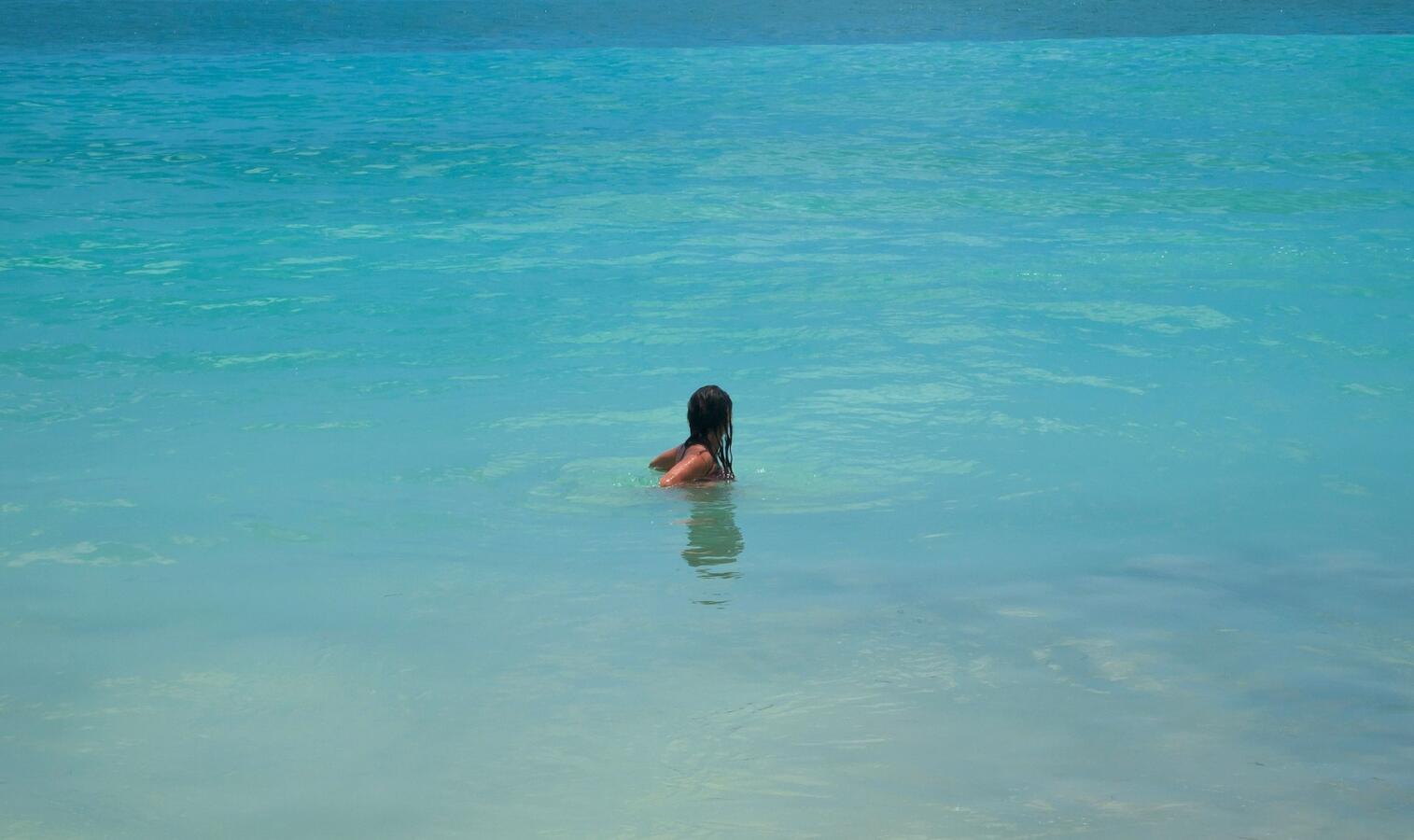Question: I heard that you can use a natural body of water, like an ocean or a lake, as a mikveh if you don’t have a regular mikveh available to you. How does that work? You just go skinny dipping and say a blessing?
–Rose, New York
Answer: Skinny dipping as spiritual practice? I wish! There are rules for using the mikveh (sometimes spelled mikvah) that make it a little more organized than just cavorting naked in the water with your friends.
In general, I’d say that if you regularly use a mikveh for the purposes of family purity and you’re going to be in a situation where you won’t have access to one, but will have access to a natural body of water, like an ocean or a lake, it’s best to contact a rabbi or yoetzet and get their input. A yoetzet is a woman who has carefully studied the laws of niddah and is considered an authority on issues related to the mikveh. If you don’t already have a yoetzet that you know and feel comfortable with, your rabbi might be able to recommend one, or you can check out yoatzot.org.
With your help, My Jewish Learning can provide endless opportunities for learning, connection and discovery.
However, I can give you some basic tips on using a natural body of water for ritual immersion. First of all, not all bodies of water are created equal, and they don’t all work as mikvehs. The laws of what constitutes a mikveh, and the construction of a mikveh are very complex, and there is an entire tractate of the Mishnah devoted to this topic. In short, a mikveh must be connected to a natural spring, or a natural well, or be connected to a cistern of rainwater (Mikvaot 7:1). Oceans are considered springs, so they always work, as do rivers that do not originate from rainwater. If you’re dealing with a river or spring that’s made up mainly of rainwater, you need to find a part of the water that is not moving. The water also needs to be deep enough that you can immerse your whole body at once.
Obviously, whenever one deals with water and swimming there are concerns about safety, and it’s absolutely imperative that ritual immersion doesn’t put your life at risk. If you can’t swim, an ocean mikveh is not for you.
Make sure that whatever body of water you’re using is safe, and if necessary find out about the schedule of the tides so you won’t be suddenly caught at high tide. Also remember that immersing in the mikveh for niddah purposes should ideally be done at night, so make sure the area is well lit and safe at night. If the area is not safe at night but is safe during the day, some rabbinic authorities allow for immersion during the day. This would be a good thing to ask your yoetzet or rabbi.
At the mikveh, there is generally a woman who watches to ensure that you were completely immersed in the water for each dunk. If your hair is long enough that you are concerned it may not all immerse at once, you probably want someone to watch, even if you’re using the ocean. This woman should be Jewish and over the age of 12 (the age that constitutes adulthood for women according to Jewish law). Some rabbinic authorities allow your husband to do this for you, if no one else is available.
On mikveh night you should prepare as you usually do, by showering, cleaning and cutting nails, brushing teeth, etc. Then, you and your helper should head out to the water. Depending on the privacy of the area you’re using, you may want to wear a bathing suit or some kind of long robe to get into the water. Then, when you’ve gotten to a point where the water is deep enough you can take off your suit under water and hand it to your helper. Before you dunk, shake off any sand or mud that may have clung to the bottom of your feet (you may want to walk out in flip flops and take them off just before you dunk). Remember to choose a spot that’s light enough that your helper can see that you’ve completely immersed.
Those are the basic rules, but I called Danit Schusterman, the mikveh lady in Maui, to ask her about her experiences using the ocean as a mikveh (Maui now has its own mikveh). The first thing Danit said to me was, “It’s not as romantic as it sounds.”
She recommended doing a lot of research first, and finding a spot where the water is calm, and the area is safe and quiet. She said, “The best thing to do is to go out wearing your swimsuit or a T-shirt, and go right before sunset. Swim around and get comfortable for a little bit, and then right after the sun actually sets take off your suit and dunk, and have the other person right there to watch.” Danit also admitted that she found the whole process of using the ocean very scary, and she wouldn’t recommend it if it’s at all possible to avoid.
Alas, it sounds like using a natural body of water as a mikveh is not as fun as going skinnydipping. Sorry! But if you’re in a bind, it’s certainly doable. Good luck!
mikveh
Pronounced: MICK-vuh, or mick-VAH, Alternate Spelling: mikvah, Origin: Hebrew, Jewish ritual bath.
niddah
Pronounced: nee-DAH, or NEE-duh, Origin: Hebrew, family purity laws governing the separation of husband and wife during and for 10 days following the woman's menstruation.



